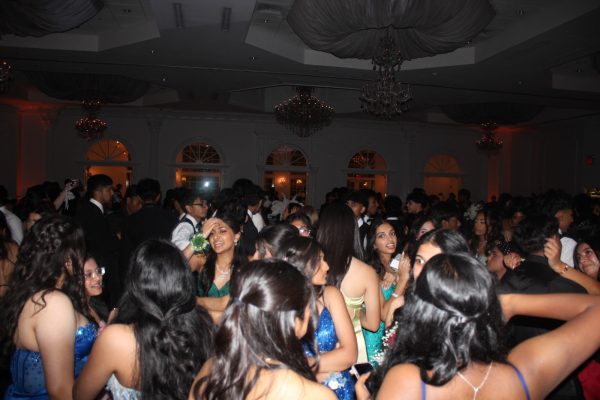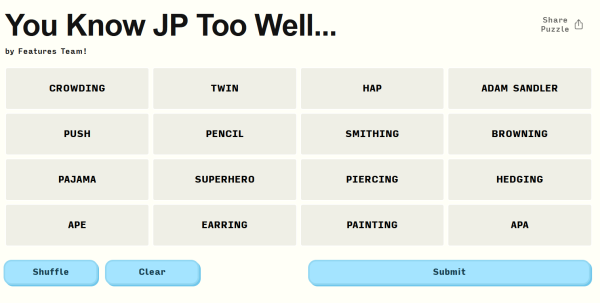Is it Just Me or Are Video Games Not Fun Anymore?
April 17, 2023
Good ol’ video games. Most of us recognize them as a hobby we lean on to relax and destress after a long day. Video games are our childhood, both past and present. Content creators make a living off them, kids debate about them at school, and even those unavoidable, unskippable ads ramble on and on about Raid: Shadow Legends or the latest obscure game. Time. Unfathomable amounts of passion and money are poured into video games. Despite the effort that goes into creating video games, they just aren’t fun anymore.
I remember being a kid, having a blast with some of the classics like Runescape or Elder Scrolls. New games nowadays simply don’t live up to the hype. It’s so common to see newly announced games with high expectations. Yet, when it launches, it crashes and burns like a bull in a china shop. What kind of magic were companies using back in the day that made video games such big hits? As it turns out, hiring workers with McDonald-like wages, putting minimal R&D into current products, and recycling the same ideas over and over again are just a few of the reasons why video games now simply fall flat. Hopefully, video game companies turn things around in the near future.
Imagine yourself as the current CEO of a skyrocketing video game company. Your most recent title has gathered the attention of thousands within the gaming community, and you want to branch off that fame. In fact, a sequel is already in the works, but you are faced with a significant dilemma. You could release your sequel on its scheduled due date, a year in the future. However, the excitement would likely die out by then, and sales might not be as impressive. On the other hand, you could just release the game right now in its current bug-ridden and unfinished state. The community would still buy the game, as it’s still popular. Who cares if it’s rough around the edges and looks like it was made on Scratch? The company is getting the money, and you’re getting that sweet bonus. What could go wrong? So, what would you pick out of these two choices?
Unfortunately, a lot of game companies choose option B. At the end of the day, it’s just not practical for a company to be using all its resources for one title. It may be a hit and earn you a lot of money, but the profit simply does not add up to all the time and resources that were spent. That’s why most companies split their teams to work on different projects. This way, multiple titles can be released, getting a lot more dough for the game companies. As a result, fewer resources and time are placed on an individual game, resulting in these unfinished messes. There are smaller studios here and there that genuinely care about the quality of their game, but the big dogs like EA and Activision only care about the money the game generates. As big companies get more and more attention, and money keeps on flowing in, their focus slowly shifts until they’ve become an unrecognizable, Mr. Krabs-esque version of themselves.
The presence of an economic recession is another key reason why video games just aren’t the same. It’s no secret that inflation is on the rise, with money being stretched thin. People no longer have the money for luxuries anymore. Their income has to go towards essential items like food and housing. No one wants to spend their already devalued money on the latest $59 Super Mario game or the newest $69 Call of Duty installment. Video games are a luxury and usually the last thing parents want to buy when tied to a strict budget. Alas, game companies need sales to function properly. Not enough sales can lead to debt, and in an economy like this, it’s almost impossible to get out. The golden era of gaming—quarantine—is over. Now video game companies are fighting for survival. This means that these businesses are forced to churn out title after title, resulting in clunky, unpolished games.
As CNBC eloquently put it, “After two years of huge expansion, the games market is poised to hand back a bit of that growth in 2022.” It’s truly a lose-lose situation for game companies. They’re losing money, forcing them to continue developing new titles. However, as a result, they make inferior, horrible titles that cause them to lose even more money, repeating the cycle.
It also doesn’t help that video game companies do not have great conditions for their workers. In the gaming industry, it’s common for “crunches” to occur while developing video games. Crunches are mandatory overtime developers enforce in order to meet the ridiculous deadlines of gaming companies. As these work weeks range between 65 to 80 hours, morale levels take a hard hit. The worst part is that most developers don’t receive adequate compensation for their intensive labor. Imagine working over 60 hours, not seeing your kids for days, and getting a pat on the back from HR as a reward. How dystopian is that?
It’s probably no surprise that the company cultures of most video game studios are toxic work environments. Over 40% of video game developers report harassment from higher-ups and fanatical fans, yet only 50% of them are actually resolved, according to GamesHub. Harassment can range anywhere from cyberbullying to sexual harassment to death threats. Most fans fail to realize developers are not at fault for developing such lousy games, it’s the company heads making the calls. Unfortunately, with each passing installment being worse and worse, these “righteous fans” take it upon themselves to harass and hurt developers who truly didn’t have a say in the final product of the game. In fact, according to GamesHub, it has gotten to a point where developers’ families are beginning to be threatened by overzealous fans. This constant harassment makes work environments inhospitable, resulting in mediocre games each year.
The situation is bleak. Game companies are stuck in a Catch-22 of making awful games to stay afloat and as a result, game developers are being harassed and attacked. No one is benefiting from this. How do we end this vicious cycle?
Change is beginning. One of the main reasons developers are forced to endure all of these harsh conditions is there isn’t much unionization yet. Unlike other industries, which have had time to develop, the gaming industry is still relatively new. There wasn’t time for unions to grow, so gaming companies could subject their developers to harsh conditions without consequence. Fortunately, unionization is rapidly increasing. Game Workers Unite, an international game developer union with over 20 international chapters, is working on improving worker conditions and the environment. In 2019 they successfully staged a walkout in Riot Games due to their discriminatory policies. Riot Games included more diversity and inclusion protection in their rules as a result. With more public support, Game Workers Unite will continue to accelerate their cause and campaign, resulting in more conditions and agreements being met. And that’s where you come in. Make some noise to show that the public has recognized the squalid working conditions of game developers. Under public pressure, game companies would have no choice but to start actually treating their developers like human beings. With happy developers… who knows? We might finally get a good installment of Call of Duty.






































